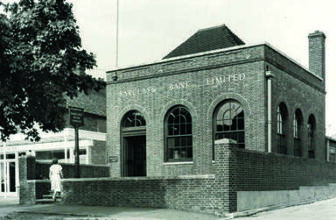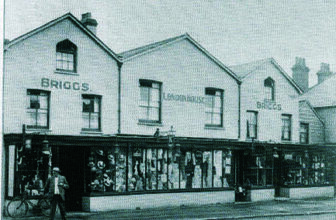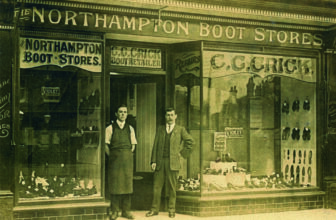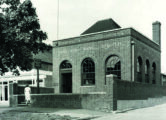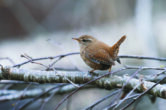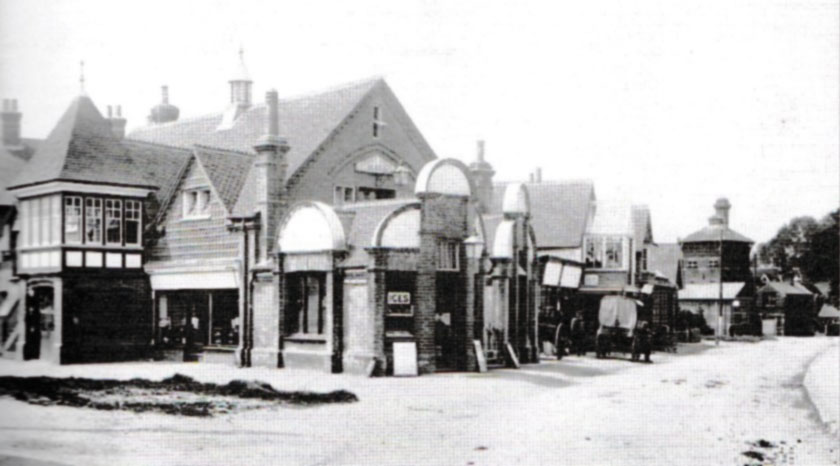
Village Hall and Rowlands Corner, 1904, with the Brewery on the right
Modern Cranleigh owes a great deal to Stephen Rowland. Among his many projects to modernise Cranleigh, in 1891 he built a Village Hall in Ewhurst Road, adjacent to his home, Yew Tree House, and the area became known as Rowland’s Corner. The Village Hall’s design was odd, with two bizarre small shops attached at the front of the building.
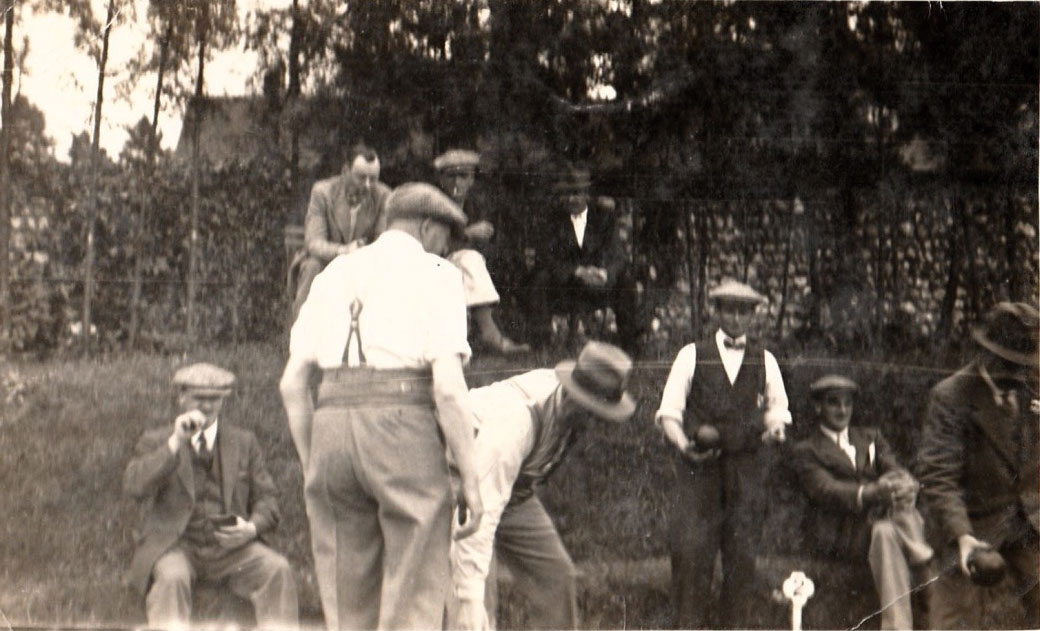
Members of the British Legion Bowls Club in nearby Dewlands Lane (courtesy of Vera Wilkinson)
The Village Hall quickly became the social centre of the Village. A concert raised money to provide uniforms for the Cranleigh Brass Band. Sunday School pupils watched a conjuror. A meeting of villagers discussed forming a Fire Brigade. The wedding presents of the doctor’s daughter at Brookmead were displayed. A series of lectures on ‘The Chemistry of Common Life’ cost 1d a time. A rummage sale raised funds for the Hazelwood Mission in Knowle Lane. The Cranleigh Gymnastics Class (all men) displayed drill and dumb bell exercises, to piano and horn accompaniment. Magic lantern views of South Africa were shown. A Spelling Bee for ‘juveniles and adults’ showed ‘striking proficiency’. The Chess Club made this its headquarters, and welcomed an international champion, who played 18 simultaneous games, and won them all. The newly-formed Church Lads’ Brigade drilled here every week under Sergeant-Major Mills. The famous missionary and former England batsman, C.T. Studd, held a men’s meeting in 1909. The Cranleigh Tennis Club held its end-of-season whist drive and dance, and the Rifle Club’s AGM took place here.
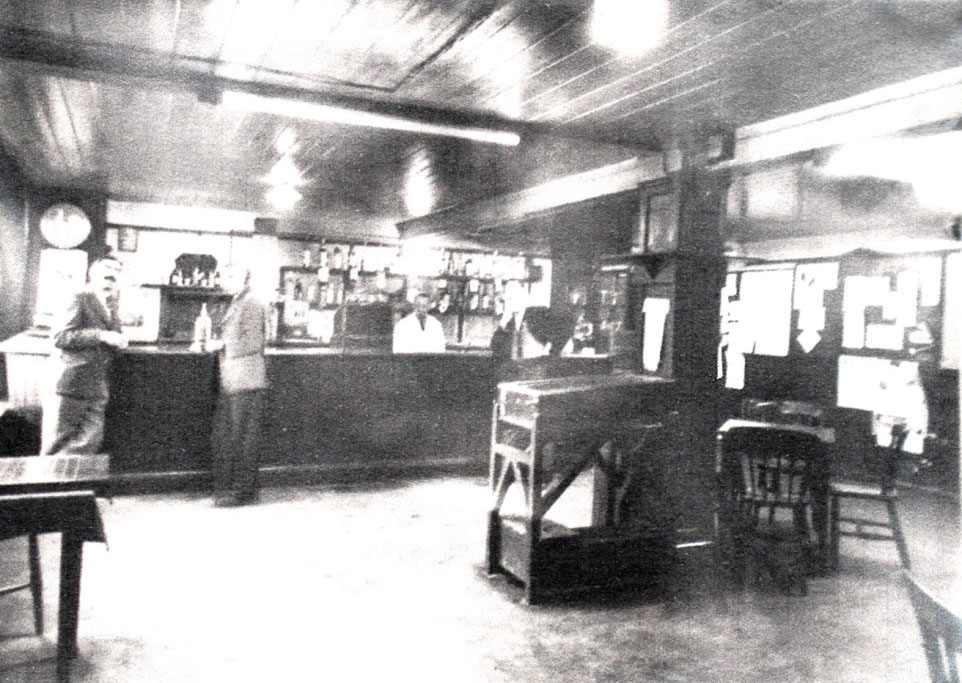
The British Legion club room in the 1930s (photo by Walter Corin, courtesy of Don Hillsdon)
The Village Hall was already proving too small by 1919 when it was planned to build a new one as a memorial to the Great War. It took a long time to raise the money, but a spacious new Village Hall was eventually opened in 1933.
Meanwhile, the Cranleigh Lodge of Freemasons (founded in 1910) was looking to acquire a building. In 1915, it gained the lease and control of the Village Hall, and in 1923 it bought the hall for £675. Local organisations were still able to use it, but there were now alternative venues available in the village. Dances were held here, with a piano providing the music, a violin being added on special occasions. The Lodge improved the hall’s facilities in 1929, providing a lounge, kitchen and committee room, and it was reopened in 1930 with the new name of the Masonic Hall.
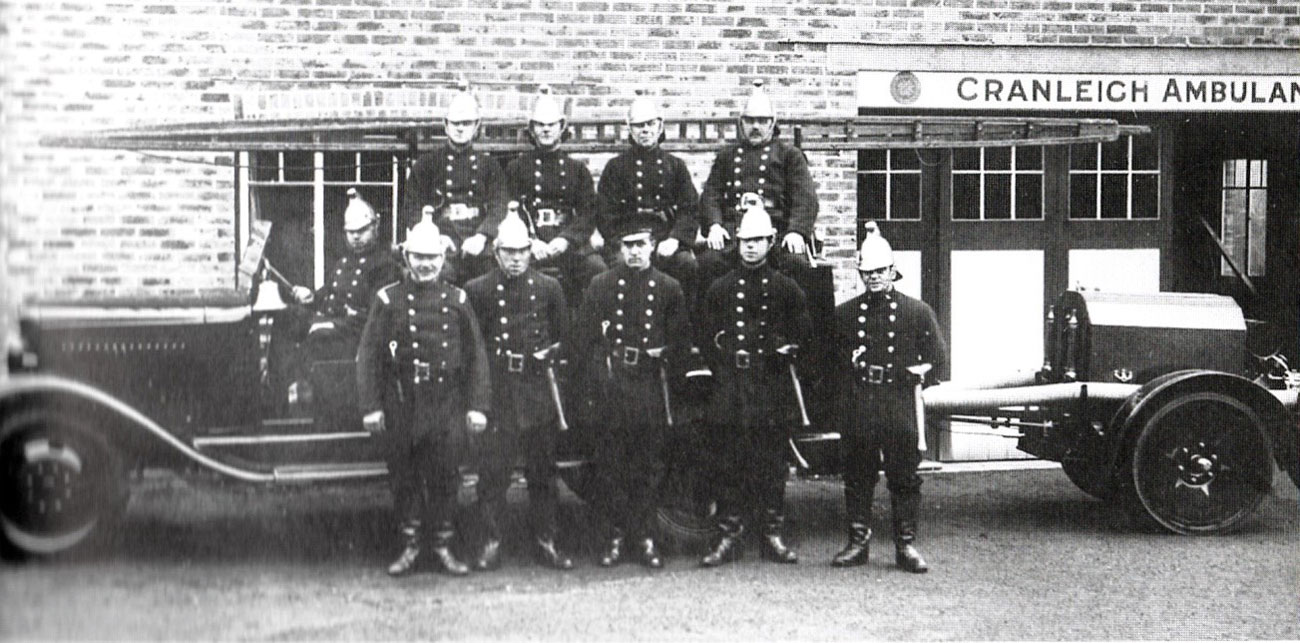
The Cranleigh Fire Brigade at the rear of the Masonic Hall in the 1930s (Budgen, Cranleigh: a History (2008))
Soon after this, in 1932, the Cranleigh and District British Legion leased the Masonic Hall as its headquarters and club. It was open daily from 10.00am to 10.00pm. Snooker and darts were played and the Legion ran two football teams and a golf section. Its bowling green in Dewlands Lane was said to be one of the best privately-owned greens in the South-East, with 60-70 players. The Freemasons still had the use of the upper room, and reached a peak of 62 members in 1933. The Cranleigh Parish Council held its meetings here, while the Fire Brigade and the Ambulance Brigade operated from a building at the rear.
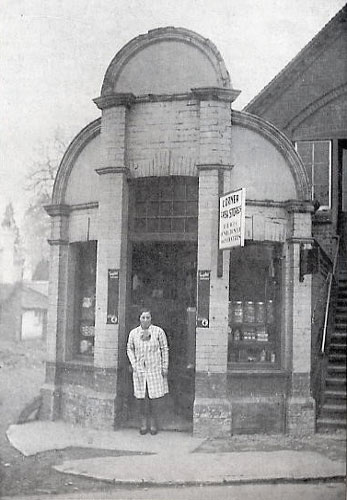
Corner Cash Stores, 1930s (Seymour & Warrington, Cranleigh Voices)
In 1953 the British Legion bought the hall for £5,000, and the Lodge built a new Masonic Hall in Village Way. The old Village Hall now had its third name – the British Legion Hall. The registrar of births, marriages and deaths also had his office in the building.
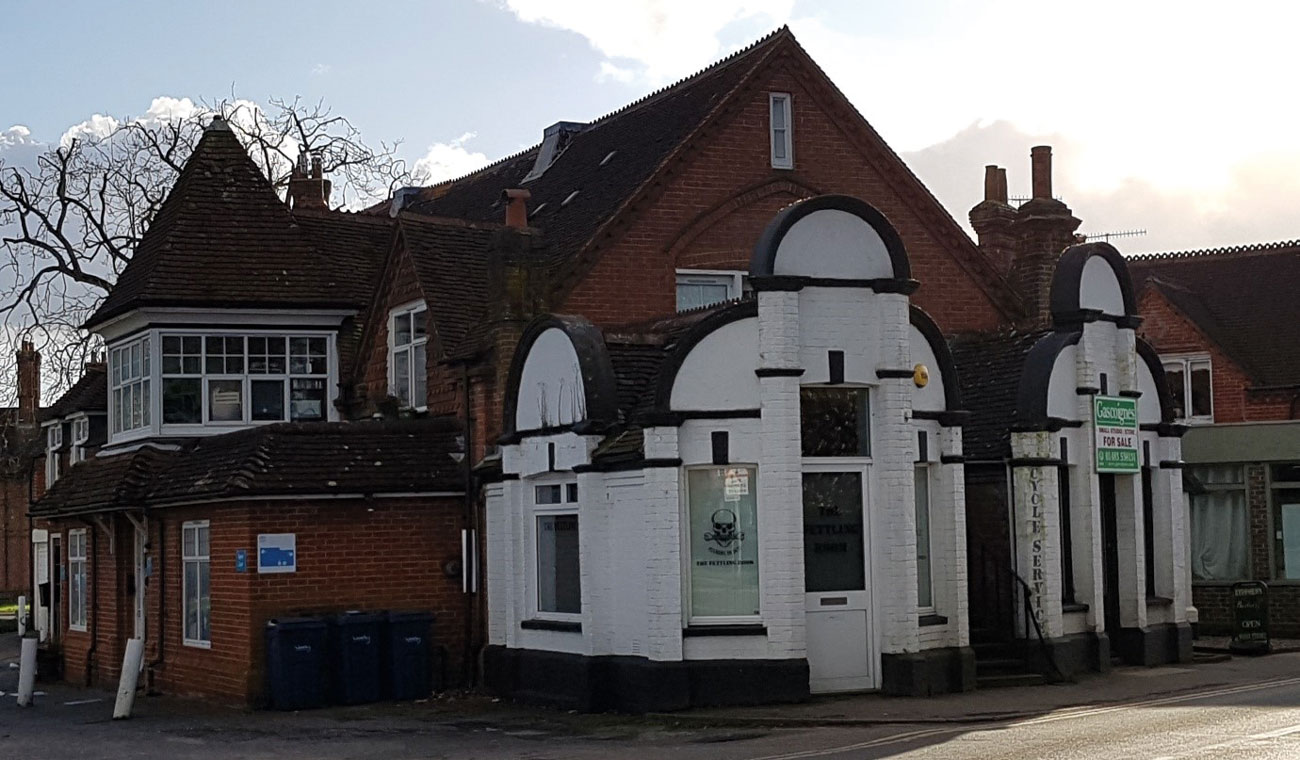
The Fettling Room is in the centre
Meanwhile, for more than 20 years, the Corner Cash Stores was operating in one of the shops attached to the front. Its large stock was packed into a tiny space.
A new and purpose-built British Legion Hall was built off Rowland Road in 1996. The old hall was then converted into flats, with the name ‘Legion House’. There are still shops at the front, including the delightfully-named ‘Fettling Room’ where bicycles are kept in fine fettle.
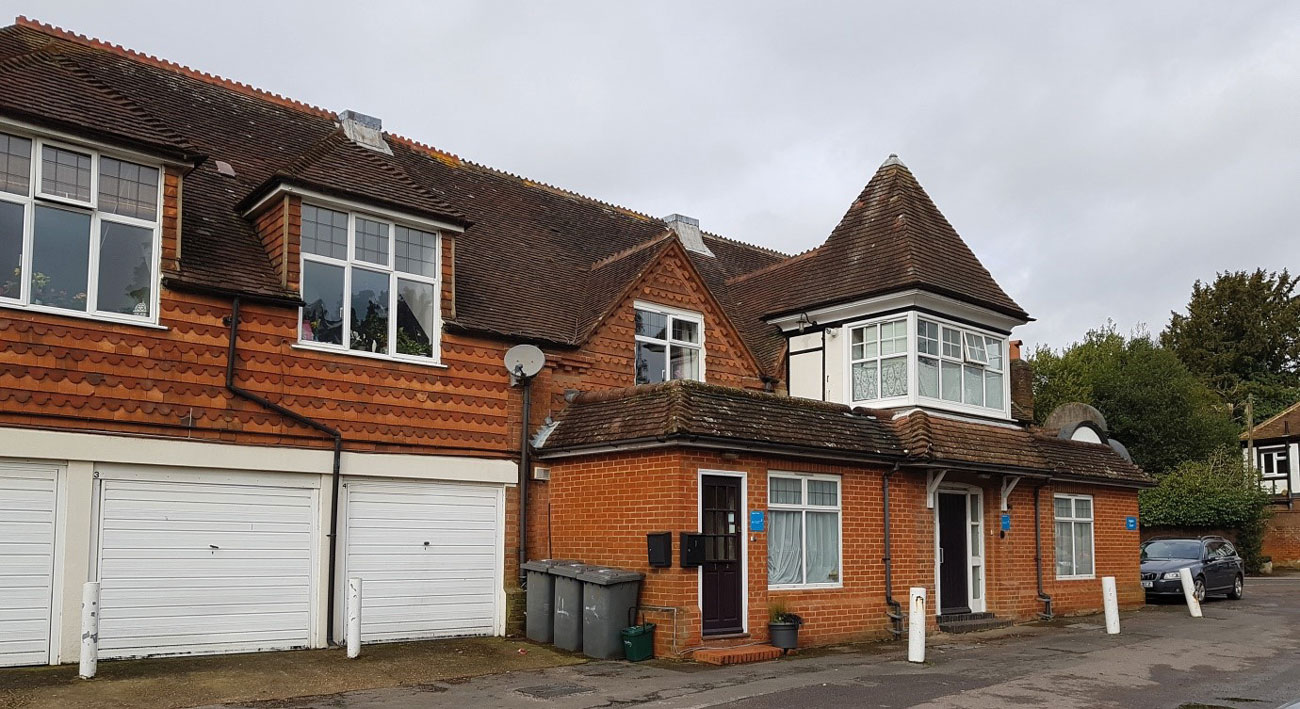
Legion House in 2020
The Cranleigh History Society will resume its monthly meetings as soon the current restrictions are lifted.



